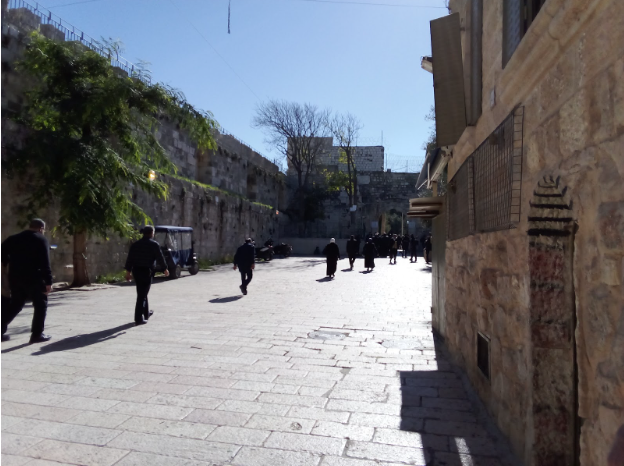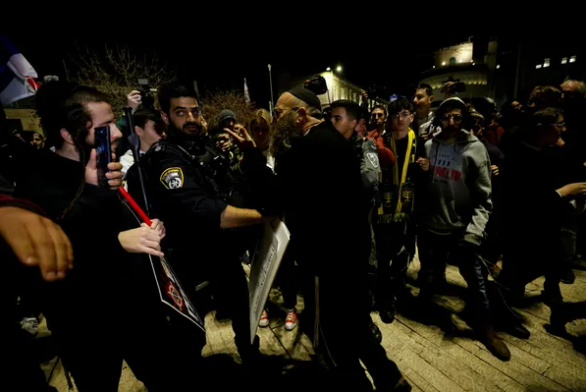Tag: Jerusalem
-

Blocking Paths to the Holy
Israeli soldiers and police once again blocked the majority of worshippers from entering Al Aqsa Mosque on Friday, December 15th.
-

Dissonance in Jerusalem
As we left the forcibly silent Muslim quarter, we were bombarded by celebration, carelessness, and isolation just a few blocks over in a Jewish Neighborhood.
-

Far Right Settler March Demanding Control of Al Aqsa Mosque Disbanded for Inciting Violence
8 December 2023 | International Solidarity Movement | Occupied East Jerusalem Marking the first night of Hanukkah, on December 7, around 150 ultra-nationalist, Kahane terrorist linked extremist settlers demanding “full Jewish control” of Al Aqsa Mosque shouted racist abuse and waved banners of violent incitement against Al Aqsa Mosque. The violent-extremist group was granted authorization…
